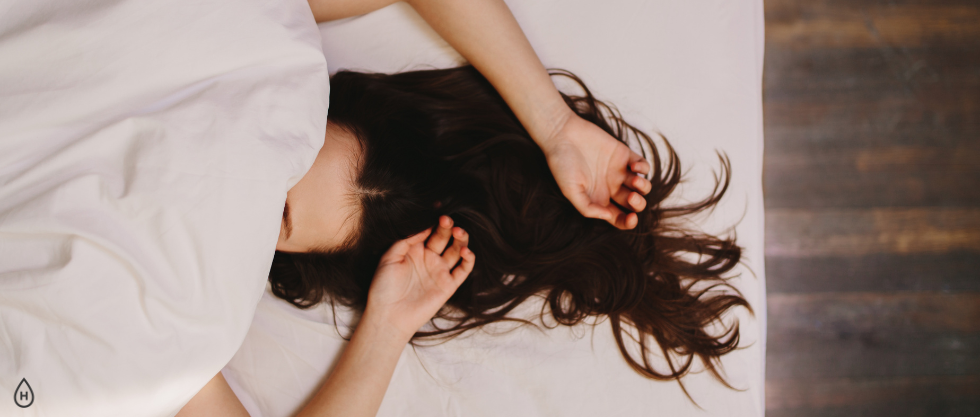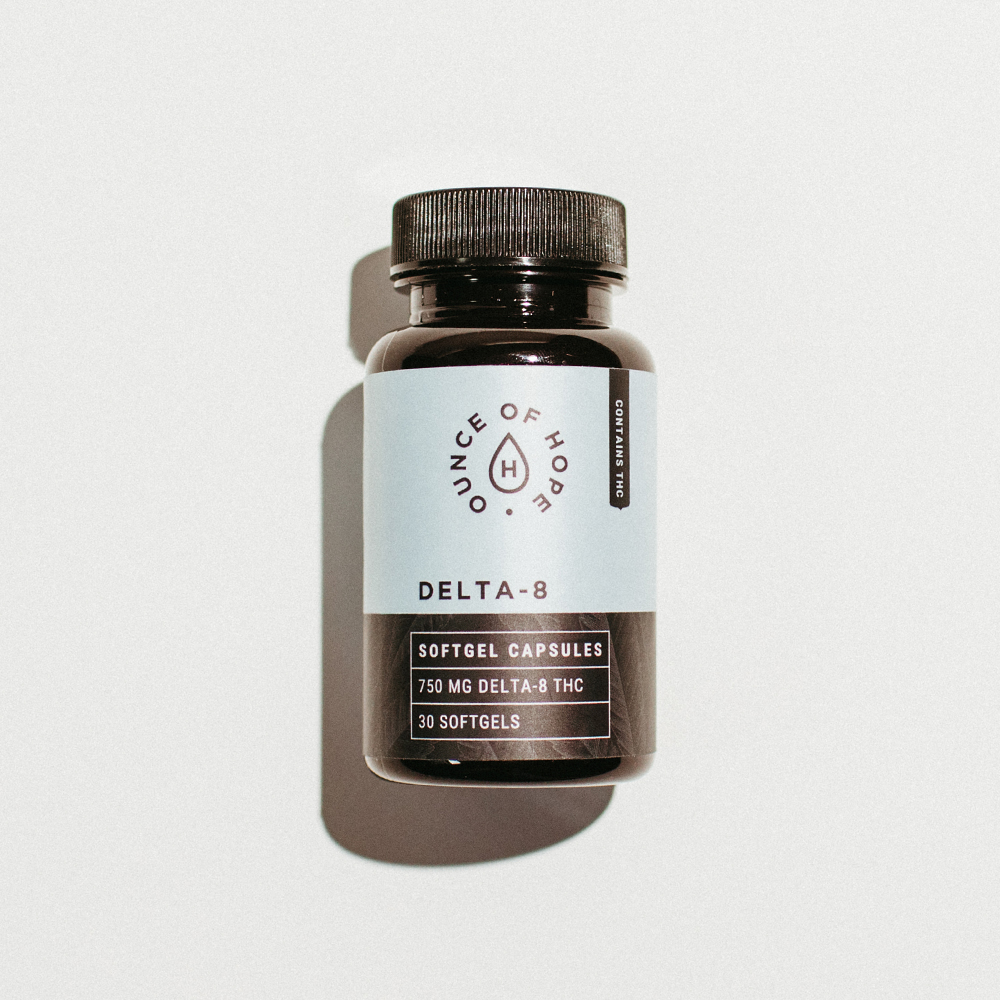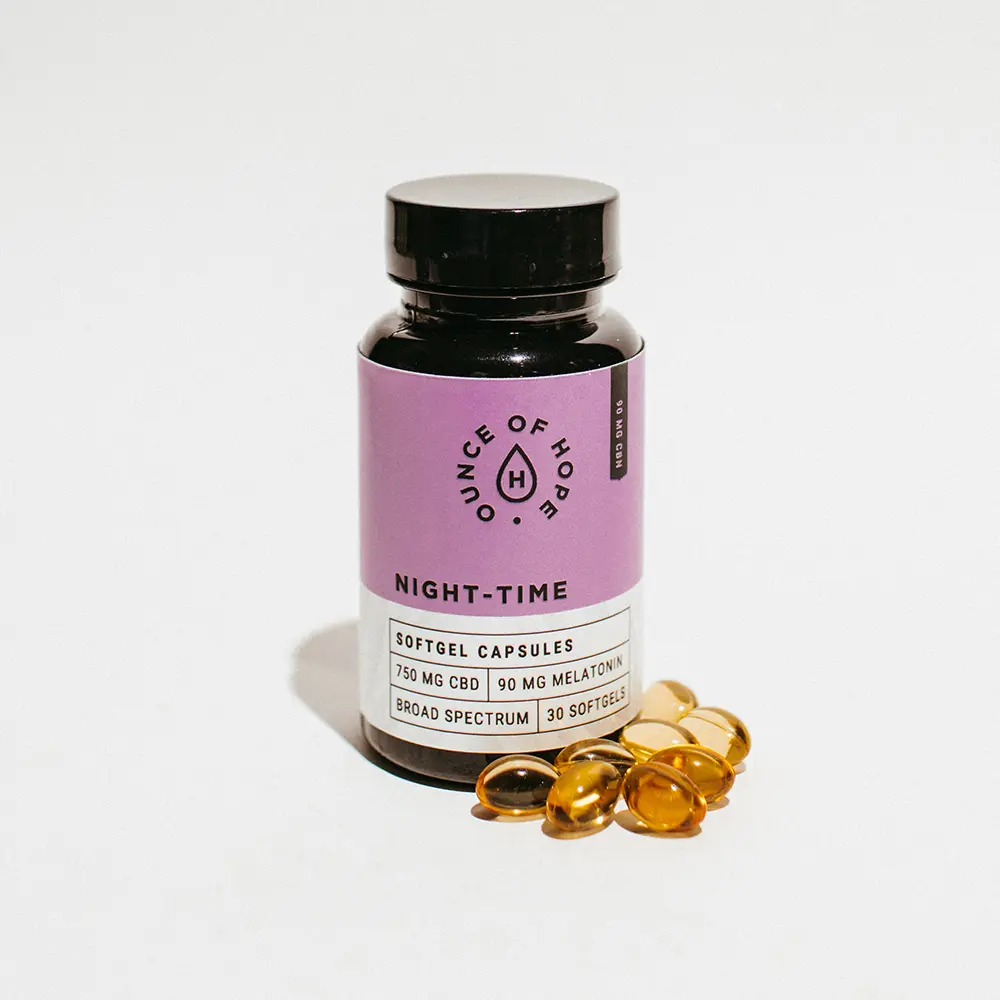It’s common knowledge getting a better night’s sleep is an important part of everyone’s day. But sleep may not always come easy or feel as beneficial as it should. People who get a full eight hours can even wake up feeling groggy, mentally foggy, or still exhausted. So what’s the deal?
You might not be getting the rest you think you are. Unfortunately, many people are unaware of the poor sleep management they’re achieving.
But maybe you’ve been a bit more forgetful lately than usual. Maybe it’s gotten so bad you feel like a zombie throughout the day. Or, maybe you’re as alert as any other day but find yourself irritable and/or grumpy.
Regardless of how you’re reacting to sleep inconvenience, we want to spread awareness surrounding the importance of sleep. Let’s share some tips for getting a better night’s sleep moving forward.
The Importance of Good Sleep
Before we dive in, it’s important to understand why restful sleep is important. When we’re young, missing sleep can typically be brushed off. Our bodies and energy levels are better equipped to handle the additional stress. As you get older, though, the consequences of lack of quality sleep can add up.
That also doesn’t mean that younger people don’t suffer from sleep deprivation. Often, it’s just less noticeable. As you get older, the downsides of not sleeping well or not sleeping long enough become more evident. The side effects accumulate. And, with enough sleep deficit, you may experience some rough symptoms.
No matter what age group you fall into, getting good sleep is important. Research links restful sleep with better brain performance, mood stability, and good health. Sleep serves more purposes than just a “downtime” for the brain. In fact, while you sleep, your body goes through a thorough cycle of repair and storage adjustment.
During the sleep cycle, your brain sorts through the day. It creates long-term memories and helps your body maintain homeostasis. It may not feel like it, but those hours you lay unconscious are critical to your well-being.
10 Tips for Getting a Better Night’s Sleep 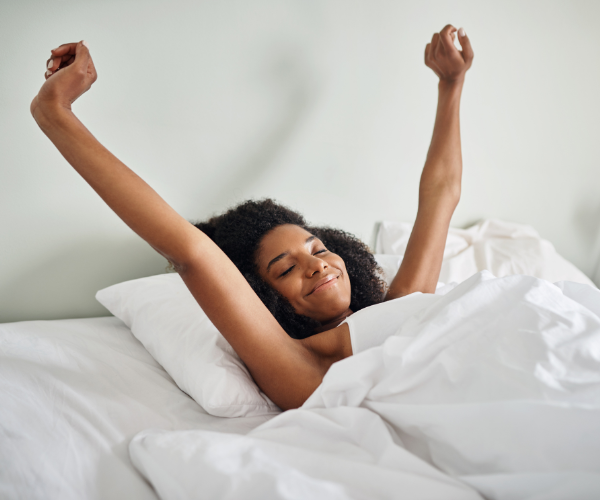
So what do you do if you aren’t regularly getting important rest? That’s where our guide comes in. We’ve compiled a list of comprehensive tips to help ease you to a better night’s sleep. Let’s dive in to see if your nights can get more restful.
1. Regular Physical Activity
Our bodies are made to move and move often. We may not be doing it as often as we should. Unfortunately, that can contribute to issues with both physical health and your ability to sleep.
If you’re having trouble falling asleep on time, add some more physical activity to your daily routine.
Other Benefits of Physical Exercise
Many forms of physical exercise can help you get rid of all that pent-up energy. Things like resistance training and aerobic exercises are excellent options for your well-being.
If you want to start with something a little less intense, cardio is just as viable and just as helpful.
Improving your sleep quality doesn’t always have to be a strenuous addition to your life. Things like yoga and breathing exercises are also viable options for those suffering from sleep problems.
How to Exercise to Sleep Better
Research shows 20 minutes of exercise twice a week can vastly improve sleep quality and help you feel better rested. Using energy and getting yourself moving is full of benefits.
It’s also best to make sure you get moving early in the day. Start exercising in the morning or early afternoon. These times show the best benefits for helping your circadian rhythm.
While it may not seem like a lot, movement adds up and may be exactly what you need to feel tired when you should finally.
2. Stick to a Sleep Schedule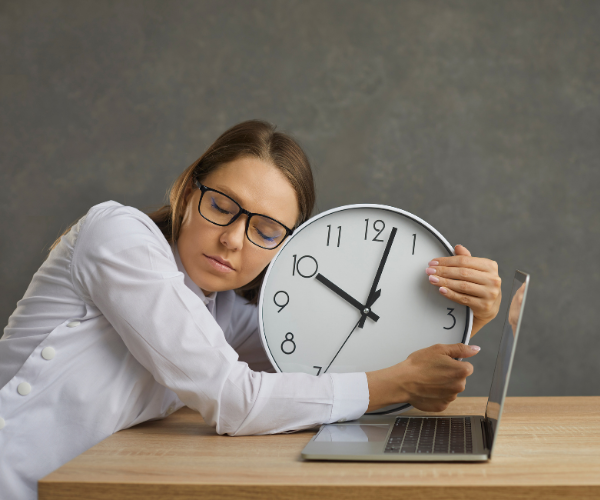
Having a routine sleep schedule is more than just making sure you go to bed at a certain time. There are several variables in play. These include the amount of sleep you get, what you do right before bed, and what time you wake up. Each factor can play a role in your overall sleep health.
Everyone is different, but there are still a few important guidelines to follow, no matter the preference or need. If you have trouble falling asleep and/or staying asleep, follow these tips.
Set a Schedule
The first thing to consider is consistency. Having a set time for bed is important, and having a fixed wake-up time is the same level of importance.
Whatever time you choose, give yourself around 8 hours of time to sleep. That should account for the 20 minutes it takes most people to fall asleep. Bedtime should be roughly eight and a half hours before you need to be up again.
Clear Away Hindrances
The second consideration is to mitigate light and noise distractions. Even watching TV or scrolling on phones can cause sleep issues.
In some cases, you may want to remove these devices from your bedroom. The light alone can cause issues with your internal sleep clock, AKA your circadian rhythm.
Optimize Your Bedroom
The third and final suggestion for this new routine is to double-check your bedroom is optimized for rest. The best way to do this is to make sure your room is dark, quiet, and comfortably cool.
Having a comfortable and relaxing sleep environment will help let your body slip off into the deep embrace of sleep and get the rest you need.
 3. Avoid Stimulants
3. Avoid Stimulants
Certain compounds in our drinks and food act as stimulants. The most popular by and far is caffeine, but there are many other popular and mainstream stimulants. The entire purpose of stimulants is to ward off those feelings of being sleepy.
Unfortunately, drinking those caffeinated beverages too late in the day may have an impact on your sleep.
It isn’t just coffee that can impact you and your beauty sleep, either. Many comfort foods and even certain medications or supplements may heavily impact our body’s ability to regulate sleep.
Some common sources of stimulants include:
- Coffee
- Tea
- Chocolate
- Alcohol
- Tobacco
- Refined salt
- Sugary foods (refined flour, corn syrup, etc.)
- Foods that contain MSG
- Artificial sweeteners
- Energy drinks
Caffeine-based diet pills and even workout supplements can also get your body too amped to sleep.
If you have trouble sleeping, start paying attention to when you last consume caffeine during the day. Shift away from evening use and you may notice a difference in how well you rest.
4. Avoid Certain Foods at Night
Stimulants aren’t the only thing to avoid in the evening for a better night’s sleep.
Dried Fruit
Not all fruit is equal.
Dried fruit is chock-full of fiber and other beneficial compounds. Unfortunately, that doesn’t make it a good choice for late-night snacking. Too much fiber late in the evening can cause bloating and gas. Both of these symptoms keep your body from being as comfortable as it needs to be.
These sweet treats also tend to be full of high levels of sugar. That pushes it into stimulant territory. If fruity flavors are your go-to, then fresh is a much better option in the evening.
Onions
Even notoriously healthy foods can cause problems with your sleep cycle. Onions are notorious for causing acid reflux in those susceptible to it.
It doesn’t matter if the onions are raw or cooked; the results tend to be the same. The onions create gas in the intestines, causing pressure to build up in the stomach. That pressure leads to acid being forced into the esophagus.
In other words, onions cause acid reflux, so steer clear of them at night.
 Tomatoes
Tomatoes
Tomatoes have high levels of natural acid and, you guessed it, can contribute to uncomfortable effects like acid reflux. As a result, they’re best in meals for breakfast and lunch instead of dinner. Try to eat them earlier rather than later in the day!
Fatty Foods
Even healthy fatty foods such as fish or avocado can cause your body to go into overdrive. It focuses on breaking down the fat instead of resting.
No matter the source, whether fried cheese sticks or avocado toast, avoid high-fat food options when settling down for sleep.
Spicy Food
Some studies point out that spicy foods like hot sauce and even mustard can alter slow wave and stage two sleep. They can increase how long we’re awake, in general. Since the entire point is trying to get a better night’s sleep, avoid spicy food at night when you can.
5. Consider Certain Supplements
When natural sleep seems out of reach, it’s time to incorporate a natural remedy into your routine. Melatonin is a popular choice since it’s already produced within the body. It can give you the extra bit of push to find deep rest when you do finally drift off.
It’s important to use supplements as directed. Overuse can cause issues with dependence. A reliable option is Ounce of Hope’s CBD softgels with melatonin. By combining the power of melatonin and CBD, you get the most out of a better night’s sleep.
6. Avoid Bed-Based Leisure
Humans are a creature of habit, and we associate certain places and activities with certain responses in our brains. An example is how certain smells can bring forth memories and emotions tied to the scent.
Just like having a dedicated space for working, having a dedicated space for sleeping is important. If you spend your awake time where you should be sleeping, your body starts associating that location with other functions.
Doing other functions in your bed can lead to stress responses as well. For example, maybe you regularly work or pay bills from the comfort of your bed. Those will be what occupies your thoughts when you’re supposed to be drifting off into a REM cycle.
The solution is simple: break up the monotony by making spaces elsewhere to take care of other tasks.
7. Reduce Evening Blue Light Exposure
The amount of light and what kind of light it is that you interact with may play a role in sleep. Any light source can have negative impacts on sleep. Studies show light exposure inhibits the melatonin secretion in our body. Blud light does the same – even more so.
Blue light carries twice the impact on melatonin production compared to green light source exposures. It also has twice the impact on our circadian rhythm. The internal displacement of these two systems in the body can really mess up someone’s ability to get rest.
Stop interacting with artificial light sources an hour or so before going to bed. Reducing screen and light exposure is a solid step for a healthy bedtime regimen.
8. Limit Naps
Naps can disrupt your natural sleep rhythm if you take them too often for too long.
Most research points to naps being the most effective and least detrimental when they are between 20 to 30 minutes. Anything past that may displace your nighttime schedule. If your body sleeps for a long period during the day, it won’t be tired in the evening.
In some cases, you might skip naps altogether to ensure you’re properly tired for bedtime.
9. Use Natural Light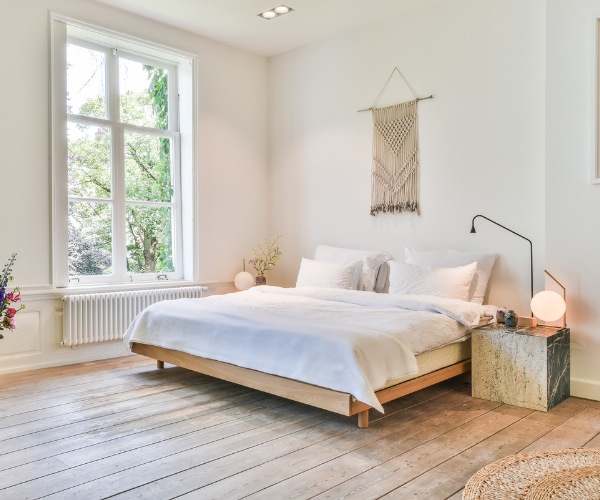
Our bodies do their best to attune to our environment. Part of that is making sure our internal clock is at the right settings.
A core component of that function is matching our circadian rhythm to nighttime. And one of the ways our bodies do that is by absorbing early-morning sunlight.
Research suggests you get at least 15 minutes of sunlight right after you wake up. It can help keep your internal clock on track. It also lets your body know you’re up and the day has started. As a result, it begins the countdown until your next rest cycle. In some ways, using natural light to wake up can make it easier to stick to a sleep schedule.
10. De-Stress Before Bed
Let’s face it – the world is full of stress. There’s no telling what someone is balancing in their day-to-day life. Everything from making sure bills are paid to keeping up with work’s demands are things that lead to stress.
But that doesn’t mean you should be carrying those burdens to bed with you.
Like how you shouldn’t drag stressful activities to your bed, taking the stress itself can be just as debilitating.
Instead, try to set aside your worries for the next day. One way of doing that is to write down things you think about and set them aside for tomorrow. That way, you don’t have to worry about forgetting, and you can put yourself more at ease before bed.
Meditation is another capable tool in the lifelong combat of battling stress. Stay organized and set priorities for tasks ahead of time. These strategies are an excellent way to ensure you aren’t carrying mental baggage with you to bed.
If you need help easing the stress away, Ounce of Hope’s Descend Oil does a masterful job. The powerful combination of CBD, delta-8 THC, and CBN can drift you off into a soft slumber.
Wrapping up
To summarize:
- Embrace regular physical activity and maintain a consistent sleep schedule.
- Be mindful of stimulants/late-night snacks and consider supplements when needed.
- Ensure your bedroom is a tranquil sanctuary optimized for rest.
- Reduce blue light exposure before bedtime.
- Keep daytime naps short and bask in the nourishing embrace of natural light during the day.
- Finally, de-stress before bed to ease your mind into a peaceful slumber.
With these tips in your sleep toolkit, you’re well-equipped to embark on a journey to dreamland.
These simple yet effective strategies pave the path to a better night’s sleep. Incorporate these tips into your daily routine. Over time, you’ll create an environment that promotes restfulness and rejuvenation. Remember, sleep is not just a nightly pause; it’s a vital ingredient for a healthier, happier you.
